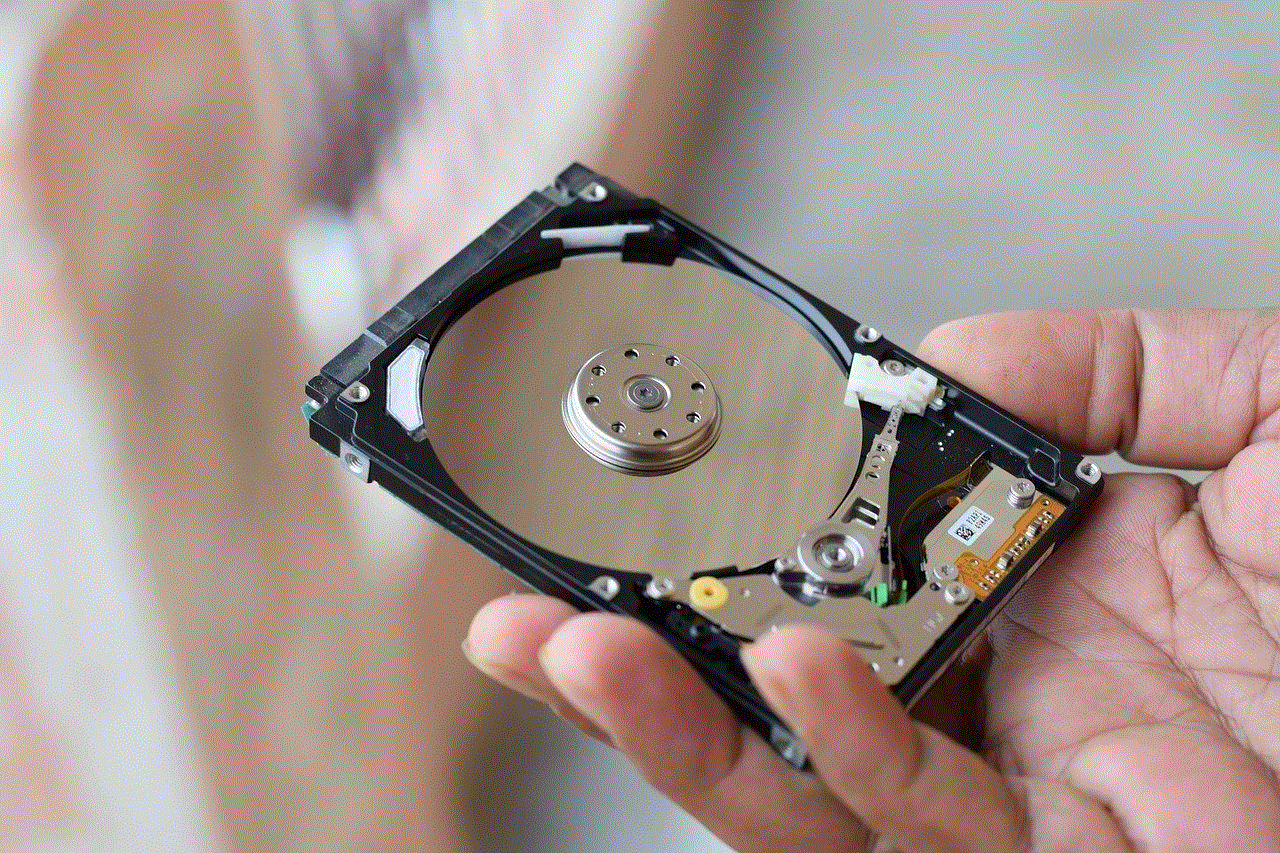apple crash detection
# Apple Crash Detection: A Comprehensive Analysis
In an age where technology has become an inseparable part of our daily lives, ensuring safety and security has taken on new dimensions. One of the most significant advancements in this realm is Apple’s Crash Detection feature, which aims to provide users with peace of mind when it comes to their safety during vehicular accidents. This article delves deep into the intricacies of Crash Detection, exploring its functionality, technological underpinnings, implications for users, and the broader impact on the automotive and tech industries.
## Understanding Crash Detection
Crash Detection is a feature integrated into various Apple devices, particularly the iPhone and Apple Watch. The primary goal of this feature is to automatically detect severe car crashes and alert emergency services if the user is incapacitated. This functionality is a part of Apple’s broader commitment to enhancing user safety through innovative technology. Crash Detection works by utilizing a combination of hardware and software, including sensors, machine learning algorithms, and real-time data processing.
### The Technology Behind Crash Detection
At the heart of Apple’s Crash Detection technology lies a sophisticated suite of sensors. These include accelerometers, gyroscopes, and GPS modules that work in tandem to monitor the device’s motion and orientation. When a crash occurs, the accelerometer detects rapid changes in speed and direction, while the gyroscope assesses the vehicle’s rotational movements. This data is then analyzed using machine learning algorithms that have been trained on vast datasets of crash scenarios, allowing the system to differentiate between normal driving behaviors and potential accidents.
Moreover, Apple has invested heavily in refining these algorithms to minimize false positives. For instance, the system can distinguish between minor bumps and severe collisions through a combination of factors, such as speed, force of impact, and the duration of the motion changes. This level of sophistication is crucial, as false alarms could lead to unnecessary panic and resource allocation.
### The User Experience: How It Works
For users, the Crash Detection feature is designed to be as seamless and unobtrusive as possible. Once activated, it operates in the background, continuously monitoring for signs of a crash. In the event of a severe impact, the device will first attempt to detect if the user is responsive. This is achieved through a series of prompts, including vibrations, sounds, and visual alerts on the screen.
If the user does not respond within a designated timeframe, the device will automatically contact emergency services, providing them with crucial information, such as the user’s location and the severity of the crash. Additionally, the device can send messages to emergency contacts, informing them of the situation. This level of automation ensures that help is dispatched promptly, which can be critical in saving lives.
### Real-World Applications and Success Stories
Since its introduction, there have been numerous accounts of the Crash Detection feature being instrumental in saving lives. For instance, a driver involved in a serious accident was unable to call for help due to injuries. Thanks to Crash Detection, their device automatically alerted emergency services, who arrived at the scene promptly, ensuring the driver received the medical attention they needed.
Another notable instance involved a cyclist who was struck by a vehicle. The individual was knocked unconscious, and their iPhone detected the crash. The device contacted emergency services, allowing paramedics to reach the scene quickly, potentially averting a more severe outcome.
Such real-world applications highlight the significance of Crash Detection not just as a technological marvel but as a life-saving feature that can turn the tide in critical situations. As stories like these continue to emerge, the importance of integrating safety features into everyday technology becomes increasingly evident.
### Privacy Concerns and Data Security
While the benefits of Crash Detection are clear, it also raises important questions about privacy and data security. Apple has long positioned itself as a company that prioritizes user privacy, and the implementation of Crash Detection is no exception. The data collected during a crash—such as location and biometric information—is encrypted and not shared with third parties without user consent.
However, some users may still feel uneasy about the potential for their data to be accessed or misused. Apple has addressed these concerns by ensuring that users have control over their data. They can opt in or out of sharing certain information, particularly in non-emergency situations. This approach helps to strike a balance between leveraging technology for safety and respecting user privacy.
### The Role of Machine Learning and AI
The integration of machine learning and artificial intelligence (AI) into Crash Detection is a game-changer. These technologies enable the system to learn and adapt over time, improving its accuracy and reliability. By analyzing vast amounts of data from past incidents, the algorithms can refine their ability to recognize patterns associated with crashes.
Moreover, as more users enable Crash Detection, the system becomes increasingly intelligent. The collective data from a diverse set of scenarios allows the algorithms to differentiate between various types of accidents, enhancing their predictive capabilities. This continuous learning process not only improves individual user experiences but also contributes to the overall safety of the driving community.
### The Impact on the Automotive Industry
The introduction of Crash Detection has implications that extend beyond individual users to the automotive industry as a whole. As more consumers become aware of such safety features, car manufacturers are likely to respond by integrating similar technologies into their vehicles. This shift could lead to an arms race in automotive safety features, with companies competing to offer the most advanced systems.
Additionally, the data collected through Crash Detection could provide valuable insights into accident patterns and trends. This information can be utilized by researchers, policymakers, and automotive engineers to develop safer vehicles and improve road safety regulations. As the automotive landscape evolves, the collaboration between tech companies and car manufacturers will become increasingly important in enhancing safety standards.
### Future Developments and Enhancements
Looking ahead, there are several potential developments in Crash Detection that could further enhance its capabilities. One possibility is the integration of additional sensors, such as those that monitor driver behavior and fatigue. By assessing a driver’s state, the system could potentially intervene before a crash occurs, offering alerts or suggestions for rest.
Furthermore, advancements in communication technologies, such as 5G, could facilitate faster and more reliable connections between vehicles and emergency services. This could enable real-time data transmission during accidents, allowing first responders to prepare for the situation before arriving on the scene.
Apple may also explore partnerships with automotive manufacturers to create a more cohesive ecosystem. By embedding Crash Detection technology directly into vehicles, the feature could become even more effective, leveraging vehicle-specific data to improve accuracy and response times.
### Conclusion: A Step Towards Safer Roads
Apple’s Crash Detection feature represents a significant leap forward in leveraging technology for safety. By integrating advanced sensors, machine learning algorithms, and seamless user experiences, Apple has created a valuable tool that has the potential to save lives. As the feature continues to evolve and gain traction, it is likely to inspire further innovations in both the tech and automotive industries.
While privacy concerns and data security remain at the forefront of discussions surrounding such technologies, Apple’s commitment to user privacy offers reassurance to consumers. The potential for future developments only adds to the excitement surrounding Crash Detection, as it paves the way for a safer driving experience.
In a world where accidents can happen in the blink of an eye, having a reliable safety net in the form of Crash Detection can make all the difference. As we look to the future, it is essential for both consumers and industry stakeholders to embrace and advocate for technologies that prioritize safety, ultimately leading to safer roads for everyone.
gps wallet tracker
# GPS Wallet Tracker: The Ultimate Guide to Protecting Your Belongings
In an age where convenience and technology converge, losing personal belongings has become a significant concern for many individuals. One item that often goes missing is the wallet, a small yet essential accessory that holds not only cash but also personal identification, credit cards, and sentimental items. Enter the GPS wallet tracker—a revolutionary device designed to mitigate the anxiety associated with misplaced wallets. This article explores the benefits, functionalities, and various considerations surrounding GPS wallet trackers, as well as their impact on personal security.
## Understanding GPS Wallet Trackers
A GPS wallet tracker is a small electronic device that can be discreetly embedded in or attached to a wallet. Utilizing Global Positioning System (GPS) technology, these trackers allow users to locate their wallets in real-time through a connected smartphone app. Many devices also employ Bluetooth technology, creating a two-way connection that provides alerts if the wallet moves out of a designated range. This innovative technology is particularly useful for individuals who frequently misplace their belongings or live in high-theft areas.
## The Importance of Wallet Protection
Wallets are often a treasure trove of personal information and assets. They typically contain cash, credit cards, driver’s licenses, and other sensitive documents. Losing a wallet can lead to identity theft, financial loss, and the hassle of replacing critical items. Moreover, the emotional stress of losing sentimental items like family photos or mementos can be overwhelming. Thus, investing in a GPS wallet tracker is not merely a precaution; it is a proactive measure that can save individuals time, money, and emotional turmoil.
## How GPS Wallet Trackers Work
GPS wallet trackers operate using a combination of GPS and Bluetooth technology. When a user attaches the tracker to their wallet, it syncs with a mobile app on the user’s smartphone. The app displays the wallet’s location on a map, allowing users to track it in real-time. If the wallet is out of Bluetooth range, the app can provide the last known location, making it easier to retrace steps.
Some advanced models include features such as geofencing, which alerts users if their wallet leaves a predetermined area. Additionally, many GPS wallet trackers come with a built-in alarm that can be activated via the app, making it easier to locate a misplaced wallet in a cluttered environment.
## Choosing the Right GPS Wallet Tracker
With numerous options available on the market, selecting the right GPS wallet tracker can be daunting. Here are several factors to consider when making a choice:
### 1. Size and Design
The size and design of the tracker are crucial, especially since it needs to fit comfortably within or attach to a wallet. Opt for a slim, lightweight model that won’t add unnecessary bulk to your wallet.
### 2. Battery Life
Battery life is an essential consideration. Some GPS wallet trackers come with rechargeable batteries that can last several days, while others may require frequent replacements. Look for a model that strikes a balance between longevity and ease of use.
### 3. Connectivity
Ensure the tracker has robust connectivity options. Bluetooth range can vary, so choose a device that offers a reliable connection. Additionally, check if the app is compatible with both iOS and Android devices.



### 4. Features
Different trackers come with different features. Some may offer advanced functions like geofencing, while others may focus solely on basic tracking. Determine which features are essential for your needs.
### 5. Price
The cost of GPS wallet trackers can vary significantly. While it’s tempting to opt for the cheapest option, consider the long-term value and potential savings from preventing loss or theft.
## Top GPS Wallet Trackers on the Market
Several brands have made a name for themselves in the GPS wallet tracker market, each offering unique features and capabilities. Here are a few notable options:
### Tile Slim
Tile Slim is known for its sleek design and ease of use. This Bluetooth tracker fits perfectly in a wallet and can be tracked via the Tile app. The Tile community feature also allows users to leverage others’ devices to help locate lost wallets. However, it has a limited Bluetooth range and relies on users being within proximity.
### Chipolo Card
Chipolo Card is another excellent option, featuring a thin design that seamlessly fits into a wallet. The device is Bluetooth-enabled and offers a loud alarm to help locate misplaced items. It also provides a “find my phone” feature, allowing users to locate their phones through the tracker.
### Tracki 4G GPS Tracker
For those seeking a more advanced solution, the Tracki 4G GPS Tracker offers real-time GPS tracking with worldwide coverage. This device is slightly bulkier but provides extensive tracking capabilities, making it ideal for travelers or individuals who frequently misplace their belongings.
### Apple AirTag
For Apple users, the AirTag is an appealing option. This small, circular tracker integrates seamlessly with the Apple ecosystem and uses the Find My app for tracking. The AirTag also features Precision Finding, which provides directions to the lost item when within range.
## Benefits of Using a GPS Wallet Tracker
Investing in a GPS wallet tracker comes with a myriad of benefits. Here are some significant advantages:
### 1. Peace of Mind
The primary benefit of using a GPS wallet tracker is the peace of mind it provides. Knowing that you can track your wallet’s location at any time reduces anxiety and allows for a more carefree lifestyle.
### 2. Quick Recovery
In the unfortunate event that you lose your wallet, a GPS tracker can help you recover it quickly. Real-time tracking and alerts make it easier to locate your wallet, reducing the time spent searching or worrying.
### 3. Prevent Theft
Many GPS wallet trackers come with features that can alert users if their wallet is being moved without their consent. This can deter potential thieves, as the tracker can make it more challenging to steal and remain undetected.
### 4. Easy Integration
Most GPS wallet trackers integrate easily with existing smartphone technology. With a user-friendly app, you can monitor your wallet’s location right from your device, making it accessible and convenient.
### 5. Versatility



While GPS wallet trackers are primarily designed for wallets, many can be used with other belongings, such as bags, keys, and even pets. This versatility makes them a valuable addition to your personal security toolkit.
## The Challenges of GPS Wallet Trackers
Despite their advantages, GPS wallet trackers are not without challenges. Understanding these potential drawbacks can help users make informed decisions:
### 1. Battery Dependency
Most GPS trackers rely on batteries, which can drain over time. Users must remember to recharge or replace batteries, or they risk losing the ability to track their belongings.
### 2. Bluetooth Range Limitations
Bluetooth-based trackers have a limited range, typically around 100-200 feet. If a wallet is lost beyond this range, the tracker may not function effectively.
### 3. Privacy Concerns
While GPS tracking can enhance security, it also raises privacy concerns. Users must consider the potential risks of having their location tracked and ensure that they are using reputable devices and apps.
### 4. Cost
While there are affordable options, some high-end GPS wallet trackers can be costly. Users should weigh the benefits against the price to determine if the investment is worthwhile.
### 5. False Sense of Security
While GPS wallet trackers can significantly reduce the likelihood of losing a wallet, they should not be viewed as foolproof solutions. Users must remain vigilant and take other precautions to safeguard their belongings.
## Real-Life Applications of GPS Wallet Trackers
The utility of GPS wallet trackers is not limited to just personal use. Various fields can benefit from this innovative technology, including:
### 1. Insurance Companies
Insurance companies can leverage GPS wallet trackers to minimize fraudulent claims related to lost or stolen wallets. By validating claims with real-time tracking data, insurers can streamline the claims process.
### 2. Retailers
Retailers can utilize GPS tracking technology to enhance customer experience. By offering tracking devices with purchases, they can provide customers with peace of mind while also encouraging customer loyalty.
### 3. Law Enforcement
Law enforcement agencies can use GPS wallet trackers to assist in recovering stolen property. By collaborating with individuals who have trackers, law enforcement can more effectively locate stolen wallets and hold perpetrators accountable.
### 4. Travel Industry
The travel industry can benefit from GPS wallet trackers as well. Travelers often misplace their belongings. Incorporating tracking technology into luggage and wallets can alleviate some of the stress associated with travel.
## Conclusion



GPS wallet trackers represent a remarkable innovation in personal security and peace of mind. By utilizing advanced technology, these devices empower individuals to protect their belongings and mitigate the anxiety associated with losing essential items. As the market continues to evolve, users can expect even more functionality and versatility from GPS wallet trackers, making them an indispensable addition to modern life.
In a world where we increasingly rely on technology, embracing a GPS wallet tracker is a smart move for anyone looking to enhance their personal security and safeguard their valuable belongings. Whether you’re a busy professional, a frequent traveler, or someone who simply values peace of mind, investing in a GPS wallet tracker can be a game-changer, enabling you to navigate life with confidence and security.